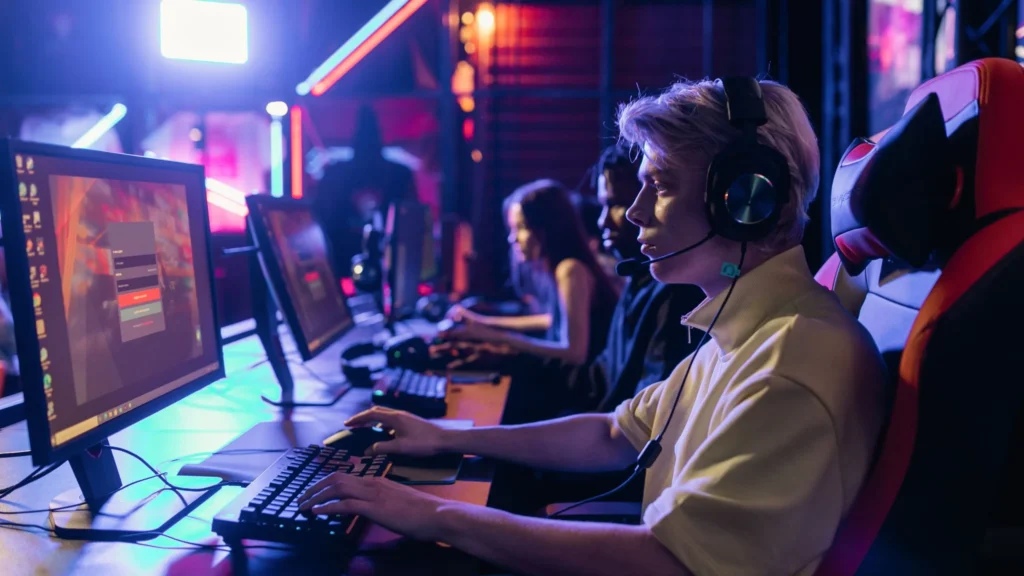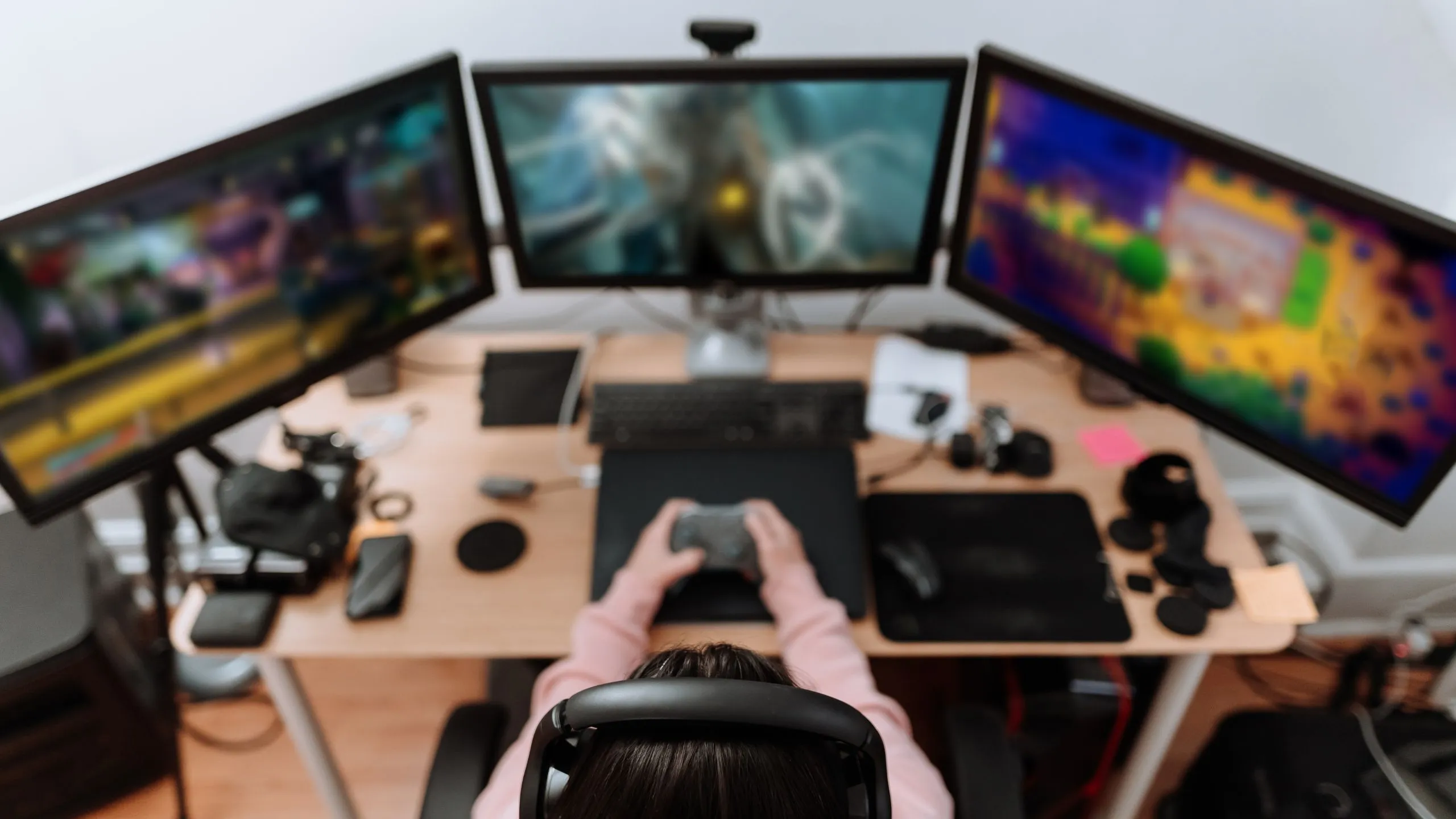“Success in gaming, like in life, is not about luck. It’s about preparation, dedication, and motivation.” – Unknown
Introduction
Have you ever found yourself staring at your screen, lacking the energy to complete a challenging level or push for a higher rank? Why do some gamers stay engaged for hours while others lose interest quickly? If you’ve ever wondered how to reignite your passion for gaming, you’re not alone.
Gaming motivation is what separates casual players from dedicated ones. Whether you’re grinding ranked matches in an esports title or simply looking to enjoy a single-player adventure, motivation for gamers plays a crucial role in performance and enjoyment.
An Entertainment Software Association (ESA) study found that over 67% of gamers play to experience a sense of achievement, while 51% do so to escape reality. This tells us that motivation isn’t just about winning but engagement, learning, and personal growth.
So, how do we sustain that drive and stay motivated in gaming? Let’s break it down scientifically and strategically.
Read also: Top 10 Motivational Books You Should Read This Year
Understanding Gaming Motivation: The Psychology Behind It
What is Gaming Motivation?
Gaming motivation is the psychological drive that keeps us engaged, whether it’s the thrill of competition, the desire for achievement, or the joy of exploration. According to Self-Determination Theory (SDT), motivation in gaming is divided into two categories:
- Intrinsic Motivation: Playing for personal satisfaction (e.g., enjoying the game, mastering mechanics).
- Extrinsic Motivation: Playing for external rewards (e.g., leaderboard ranks, in-game rewards, trophies).
The Science of Motivation in Gaming
When we achieve something rewarding in a game, our brains release dopamine, which fuels motivation. This could be unlocking a new weapon, reaching a milestone, or earning a competitive rank.
Key Psychological Triggers in Gaming:
- Flow State: The optimal mental state where a gamer is fully immersed and performing at their best.
- Goal Setting: Short-term and long-term gaming objectives create sustained motivation.
- Feedback Loop: Instant in-game feedback helps reinforce learning and improvement.
Casual vs. Competitive Gamers: Different Motivations
| Motivation Type | Casual Gamers | Competitive Gamers |
| Achievement | Unlocking content, personal progress | Reaching leaderboards, esports titles |
| Socialization | Playing with friends, co-op | Building teams, networking |
| Exploration | Story-driven experiences | Mastering game mechanics |
| Rewards | In-game currency, trophies | Sponsorships, tournament prizes |
How to Stay Motivated While Gaming
1. Set Clear Goals (Short-Term & Long-Term)
- Define what success looks like for you in gaming.
- Examples:
- Short-term: Complete three ranked matches daily.
- Long-term: Reach Platinum rank in three months.
2. Avoid Burnout & Take Breaks
- Gaming marathons without breaks can lead to mental fatigue.
- Use the Pomodoro Technique: Play for 50 minutes and take a 10-minute break.
- Balance gaming with real-life activities to keep motivation high.
3. Join a Gaming Community
- Engaging in online forums, Discord groups, and esports teams fosters social motivation.
- Studies show that social engagement boosts retention and enjoyment in multiplayer games.

4. Track Progress and Celebrate Milestones
- Use apps or in-game tracking systems to measure performance.
- Small victories (e.g., beating a tough boss and improving the K/D ratio) keep motivation alive.
5. Challenge Yourself & Try New Games
- Playing the same game repetitively can lead to stagnation.
- Experimenting with different genres improves skills and refreshes gaming enthusiasm.
The Role of Esports and Competitive Gaming in Motivation
Why Competitive Gaming Fuels Motivation
- Esports titles create external motivation through rankings and rewards.
- Watching professional players can inspire gamers to improve and strategize better.
How to Transition from Casual to Competitive Gaming
- Find your game niche (FPS, MOBA, Strategy, Fighting games).
- Join online leagues to gain experience.
- Invest in skill-building and practice daily.
Key Takeaways
- Motivation in gaming comes from goals, progress, and rewards.
- Casual and competitive gamers have different motivation drivers.
- To stay motivated, set goals, take breaks, and engage in communities.
- Tracking progress and watching pro players can boost inspiration.
- Esports & competitive gaming create high levels of intrinsic motivation.
Read also: 10 Best Self-Soothing Techniques for Effortless Emotional Control
Conclusion
Staying motivated in gaming combines psychology, strategy, and self-discipline. Setting clear goals, taking intentional breaks, and engaging with gaming communities can help us sustain our enthusiasm and continuously improve.
Competitive gaming provides an additional challenge, pushing players to hone their skills and seek greater achievements. Whether you’re playing for fun or aiming to go pro, focusing on progress over perfection is key.
Remember, every great gamer started somewhere. What truly sets skilled players apart is consistent practice, a growth mindset, and the ability to stay motivated even during setbacks.
Now, it’s your turn! What keeps you motivated in gaming? Share your experiences and insights in the comments below!
FAQs
1. How do I stay motivated in gaming when I keep losing?
Focus on improvement rather than wins. Analyze mistakes, set small goals, and take breaks to avoid frustration.
2. Is it normal to feel unmotivated in gaming sometimes?
Yes, gaming burnout happens. Taking breaks, switching games, or playing with friends can reignite your passion.
3. Can competitive gaming improve real-life motivation?
Yes! Competitive gaming enhances discipline, goal-setting, and problem-solving skills, which translate to real life.
4. How do I set effective gaming goals?
Define clear, measurable goals like ranking up or improving accuracy.
5. Does playing different games improve my skills?
Yes! Trying new genres enhances adaptability and reaction time.






